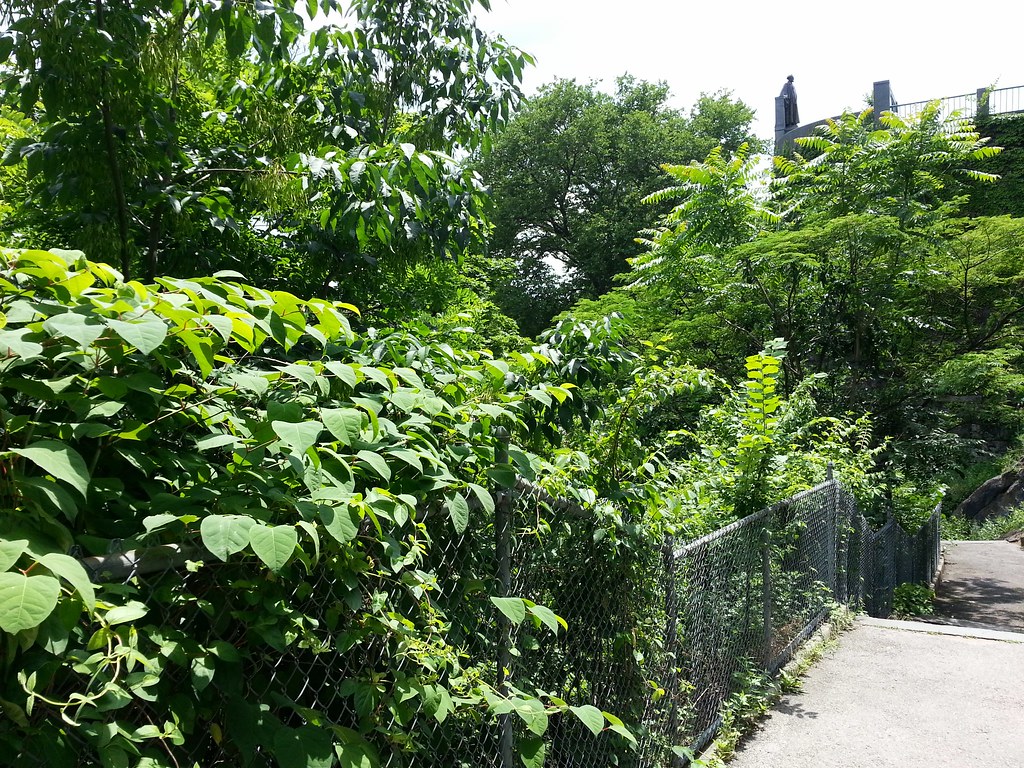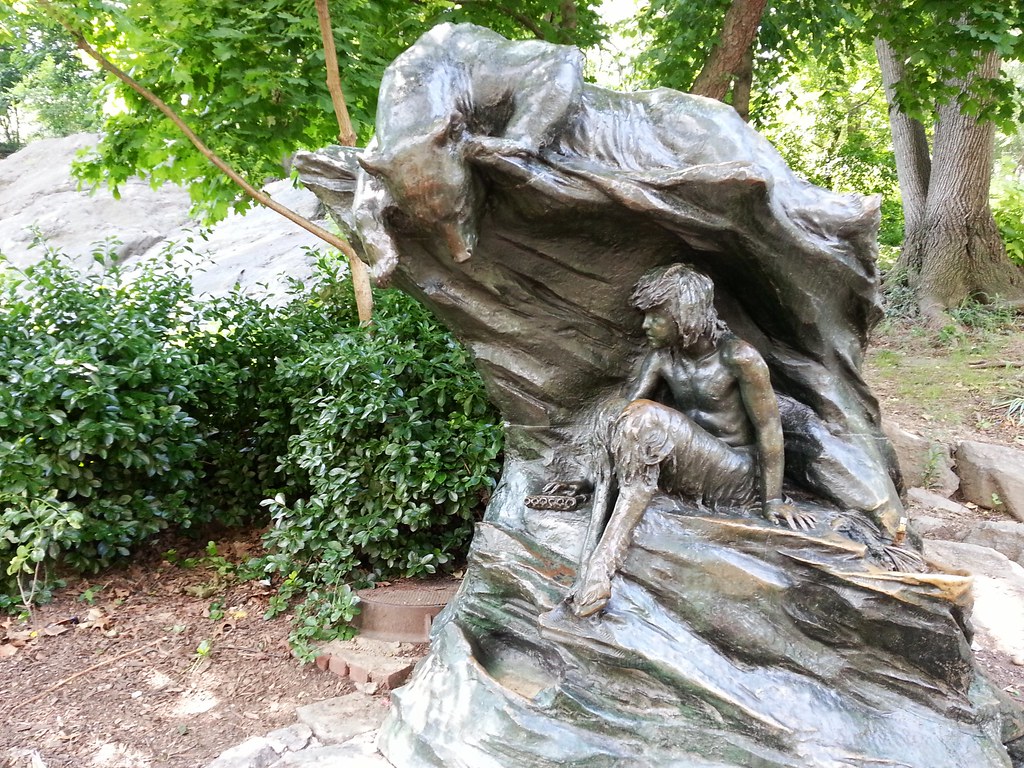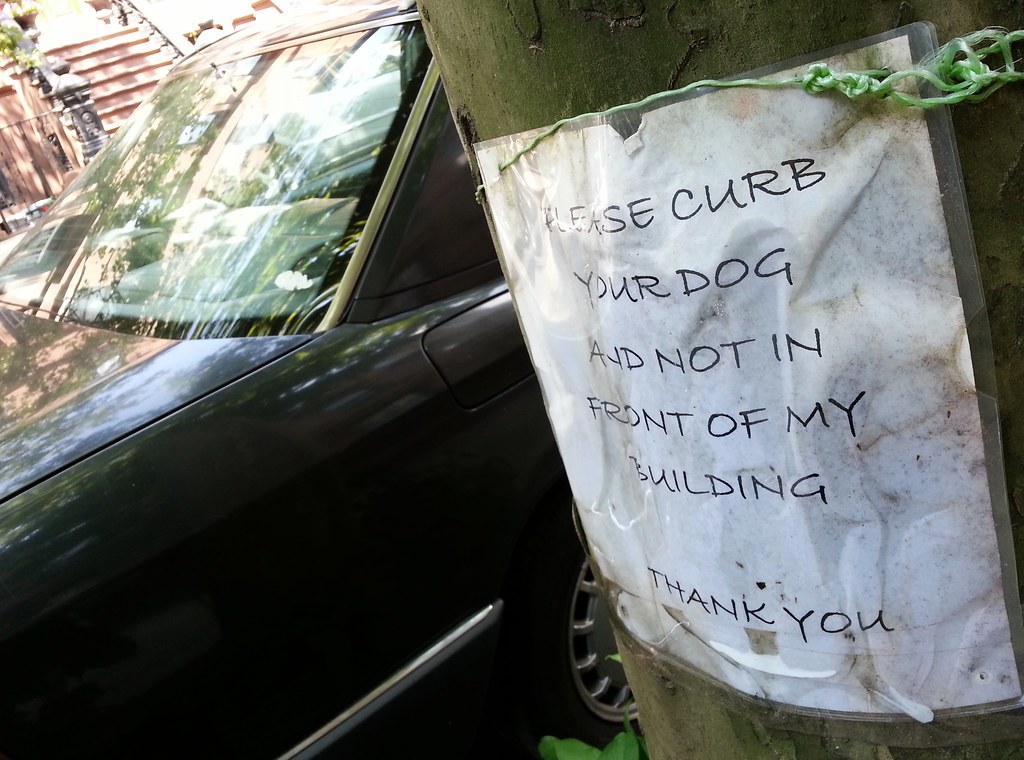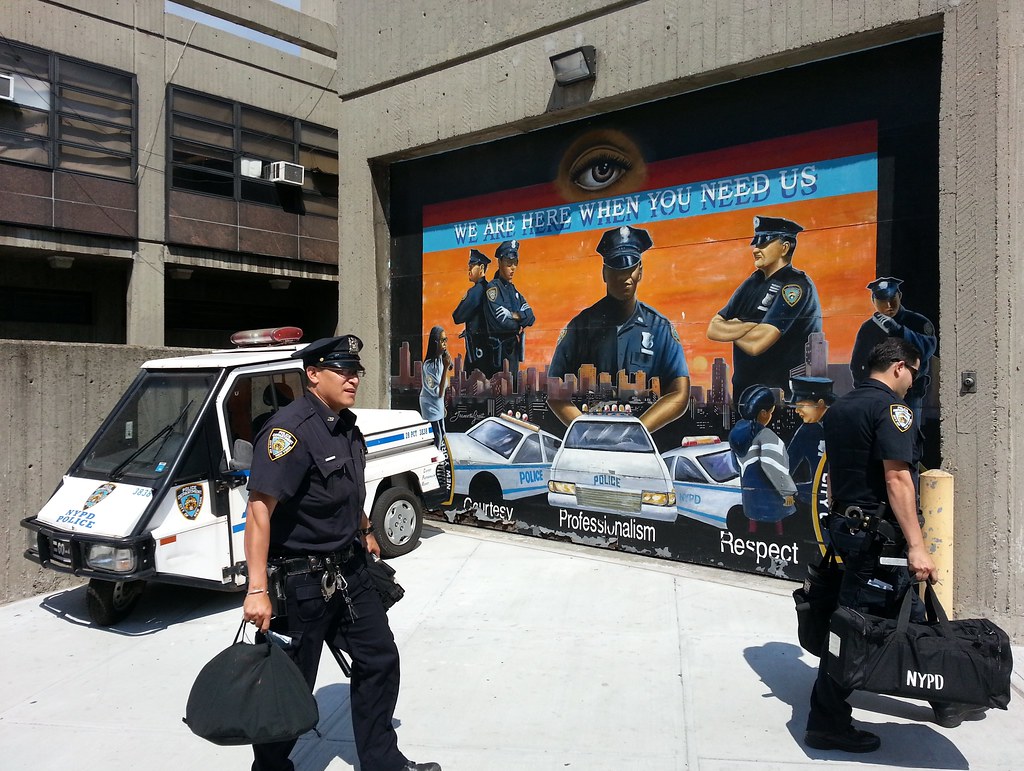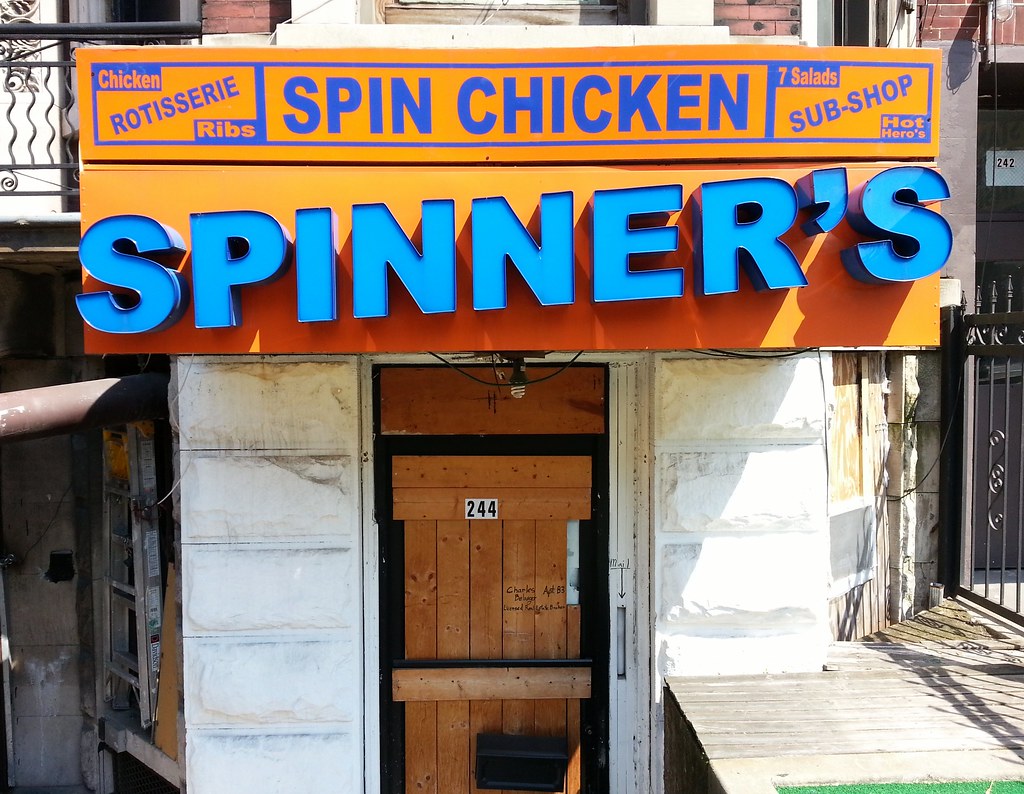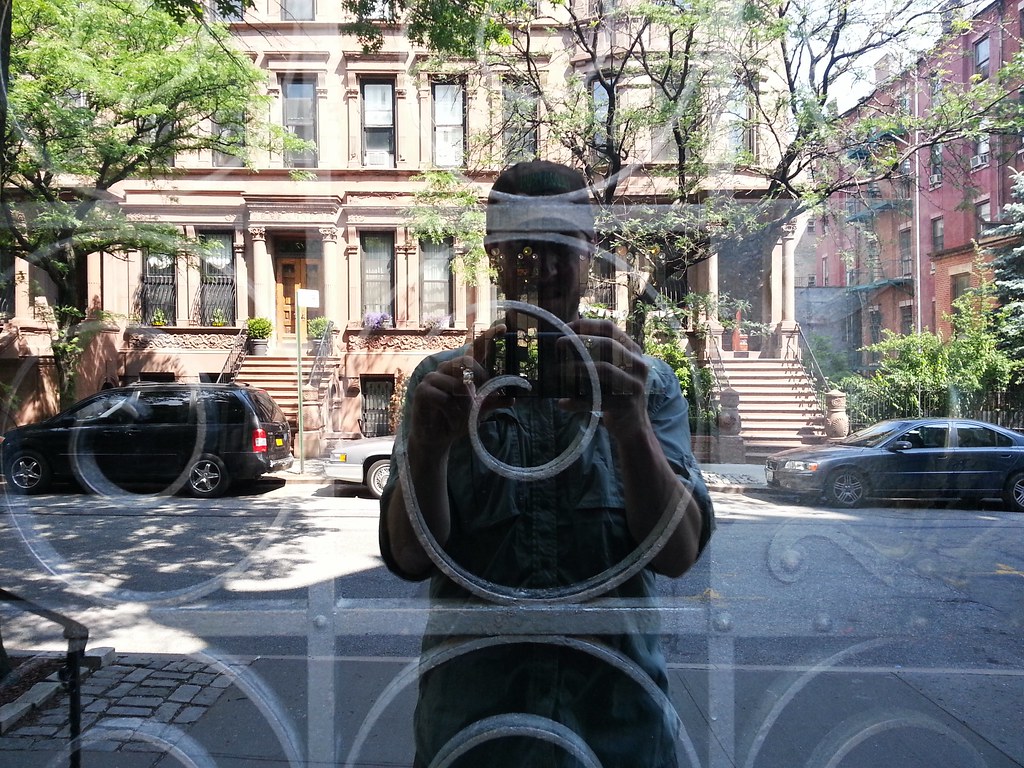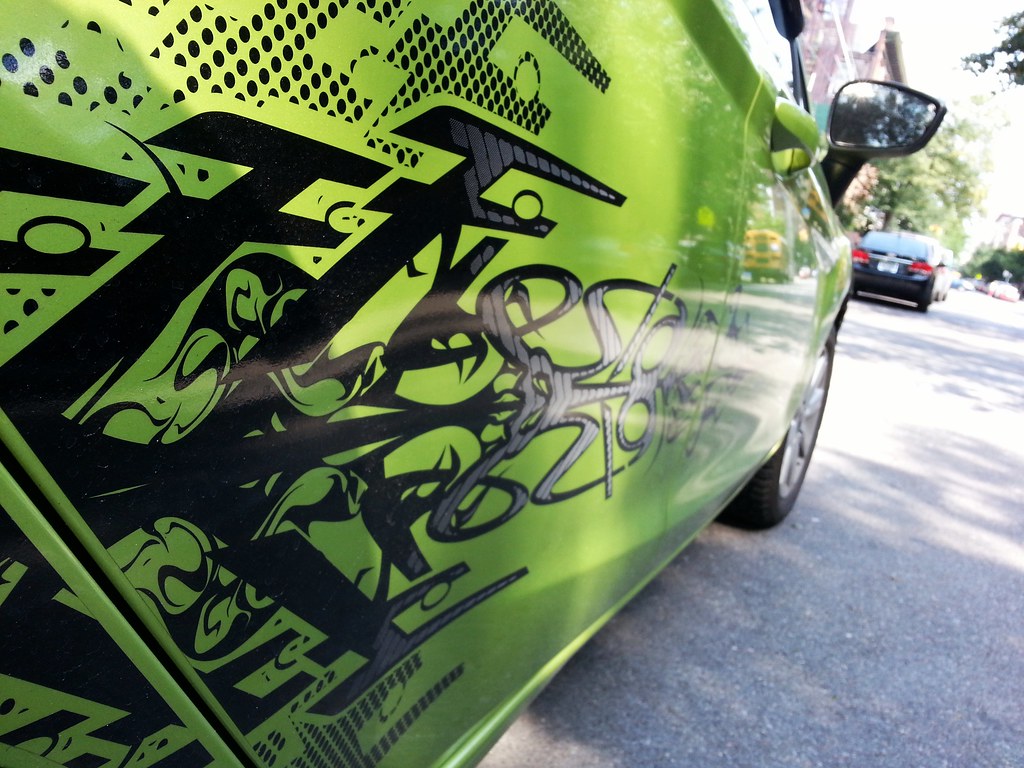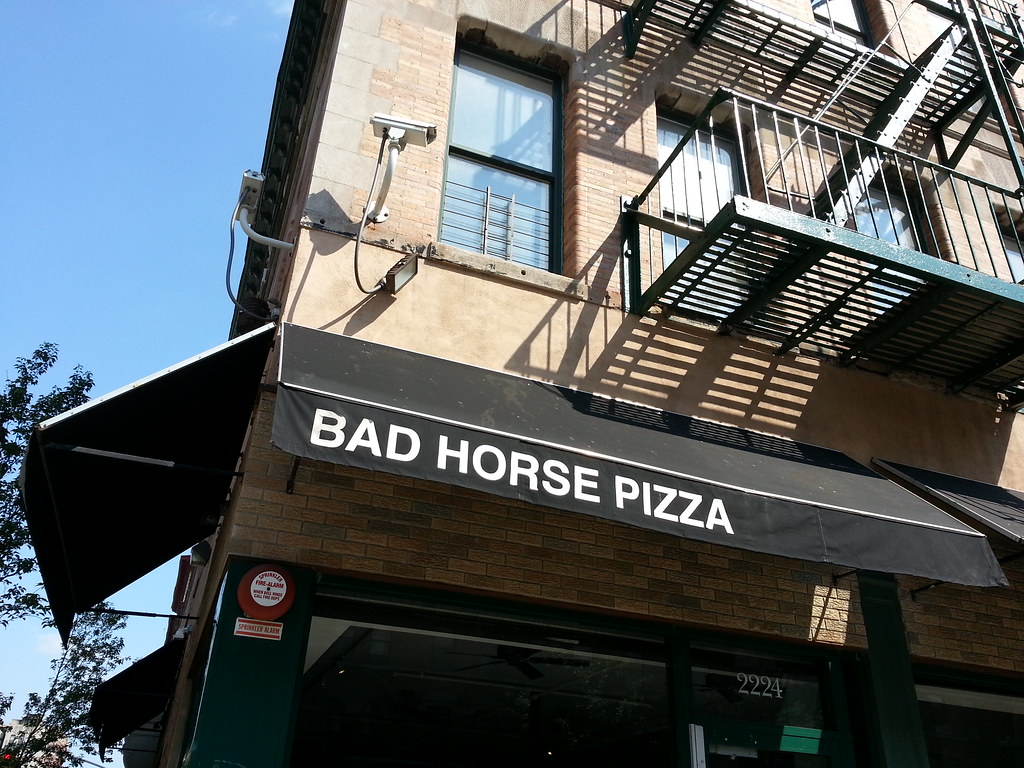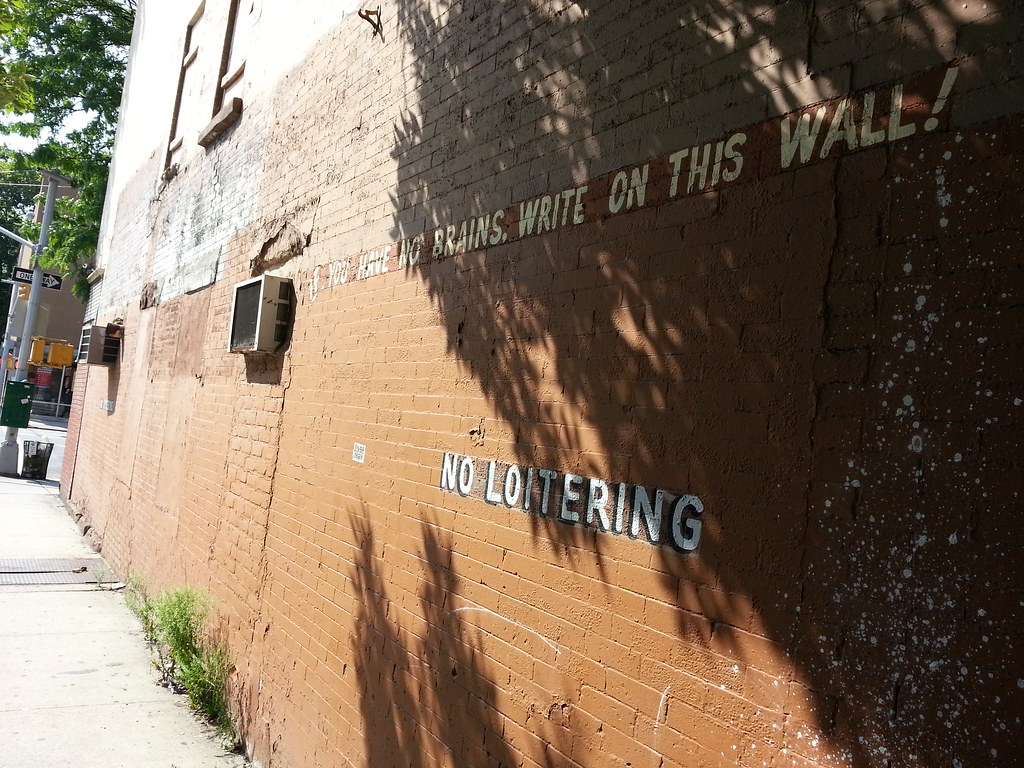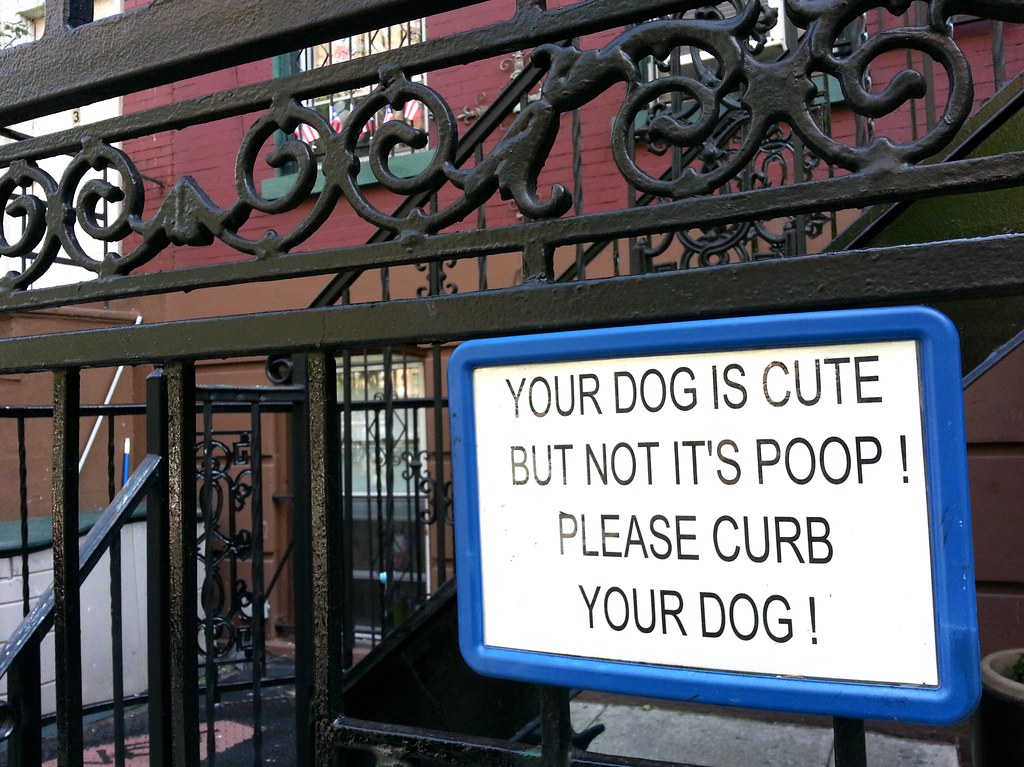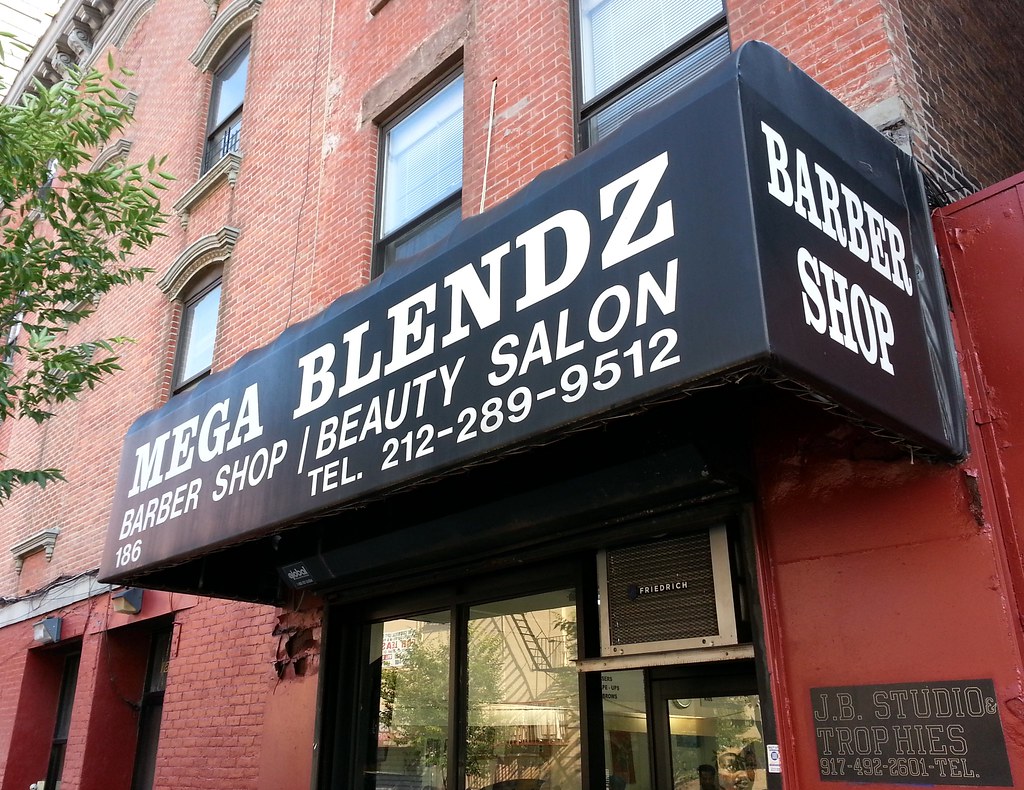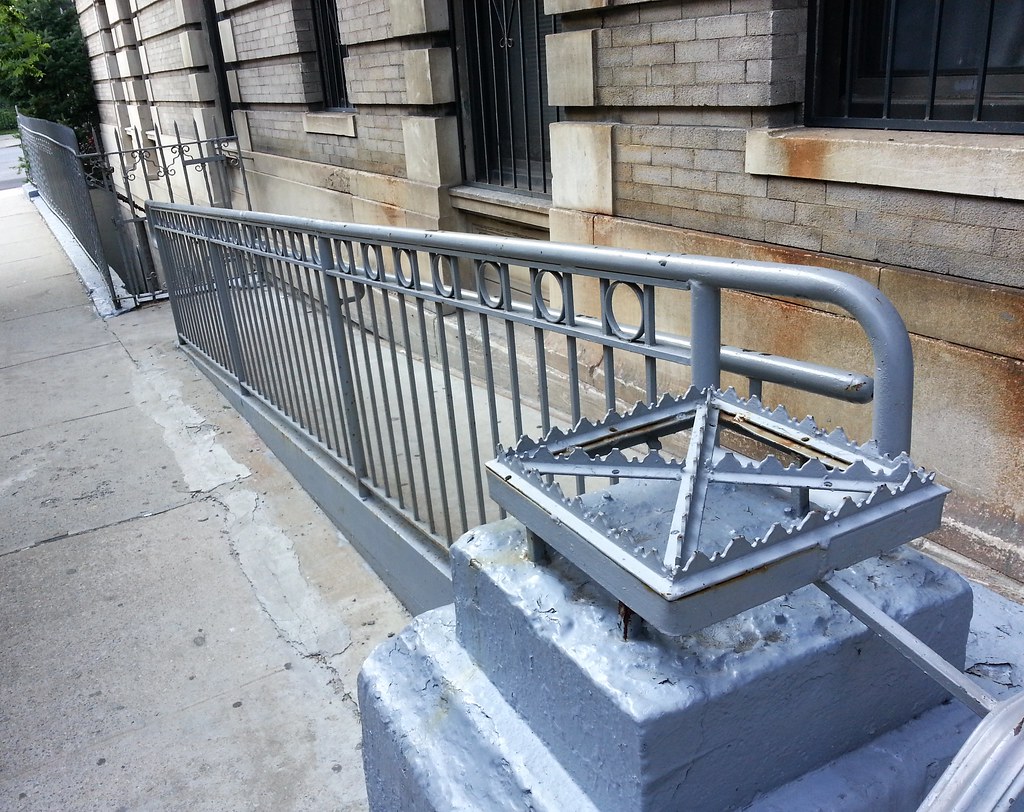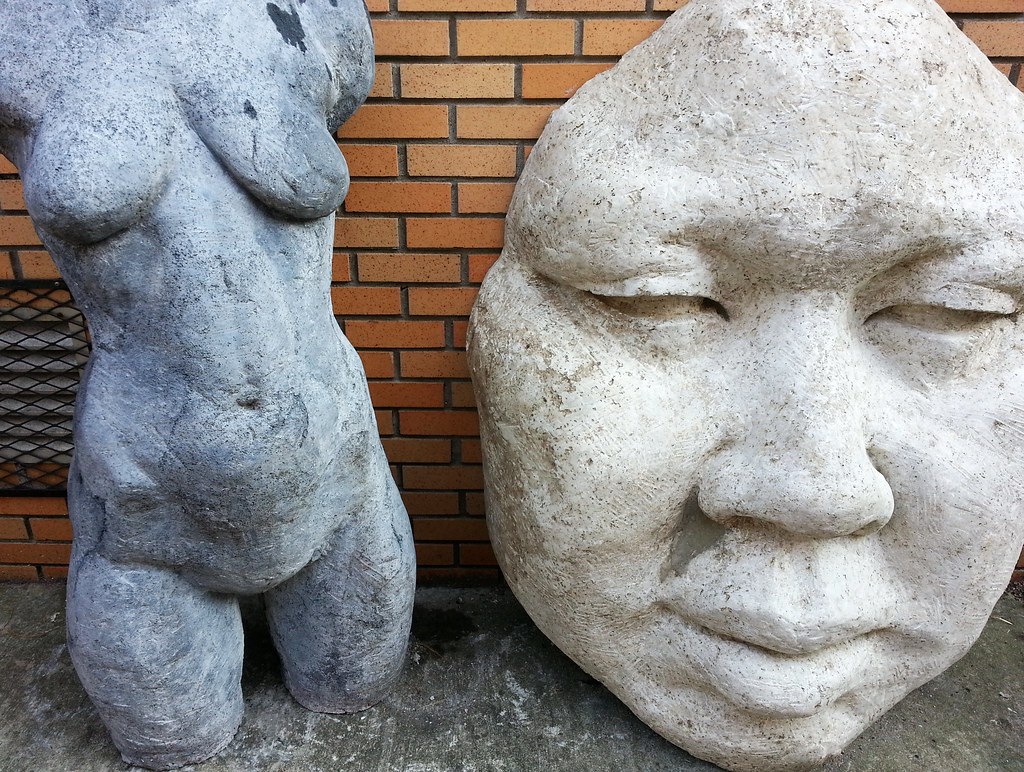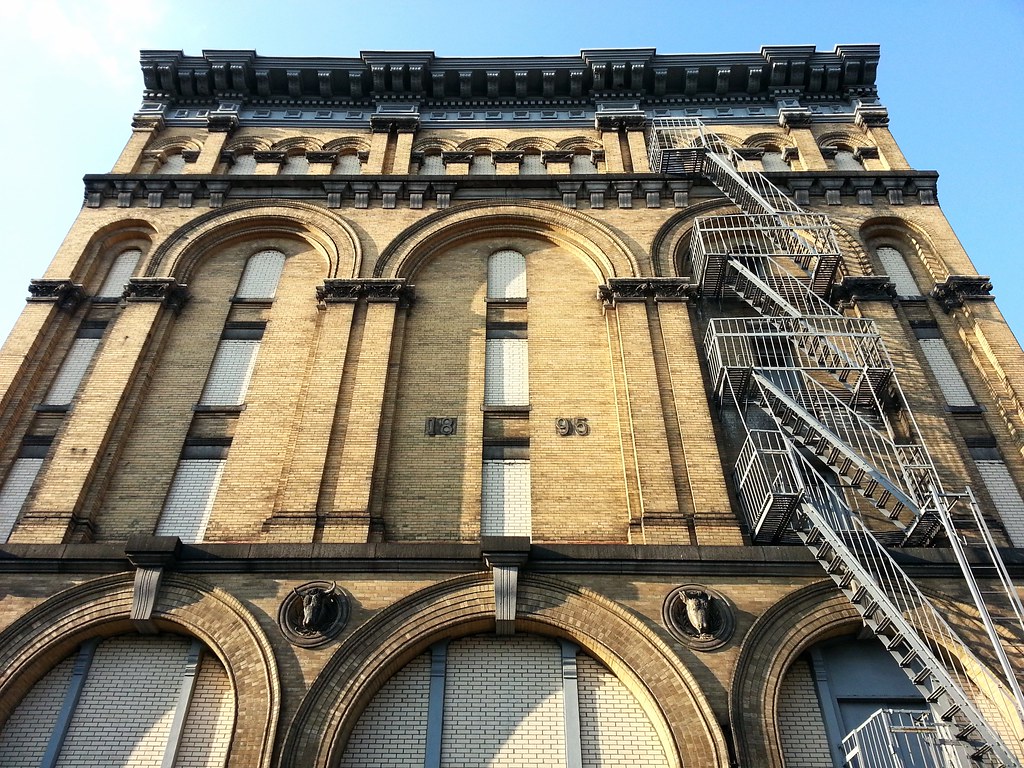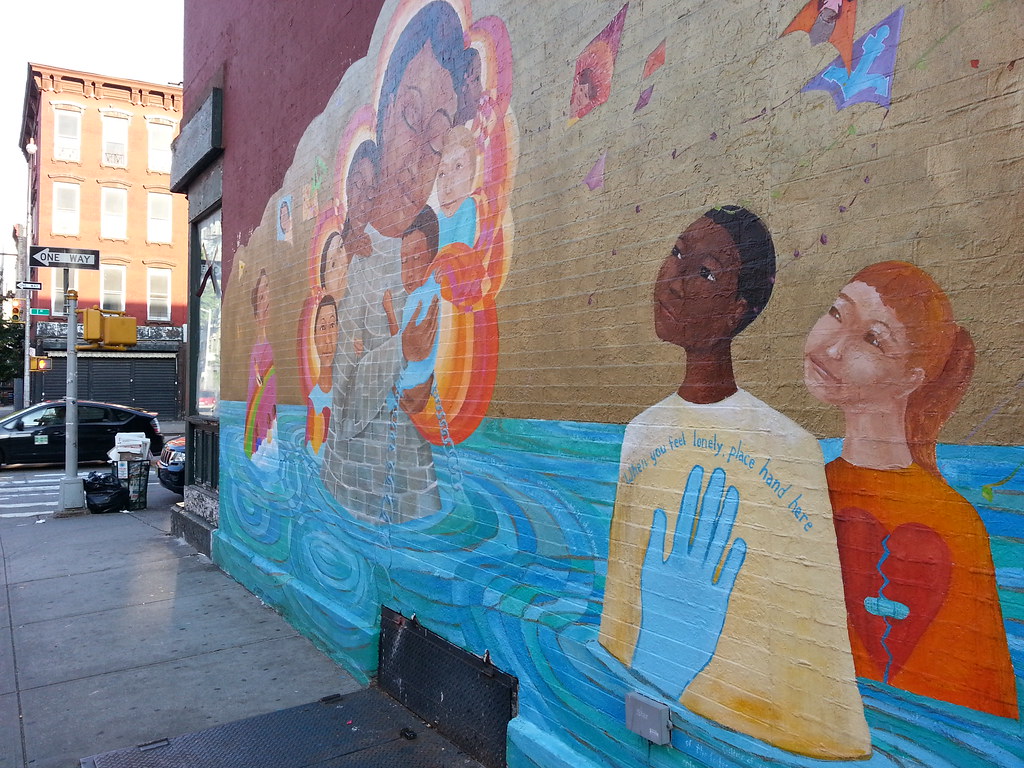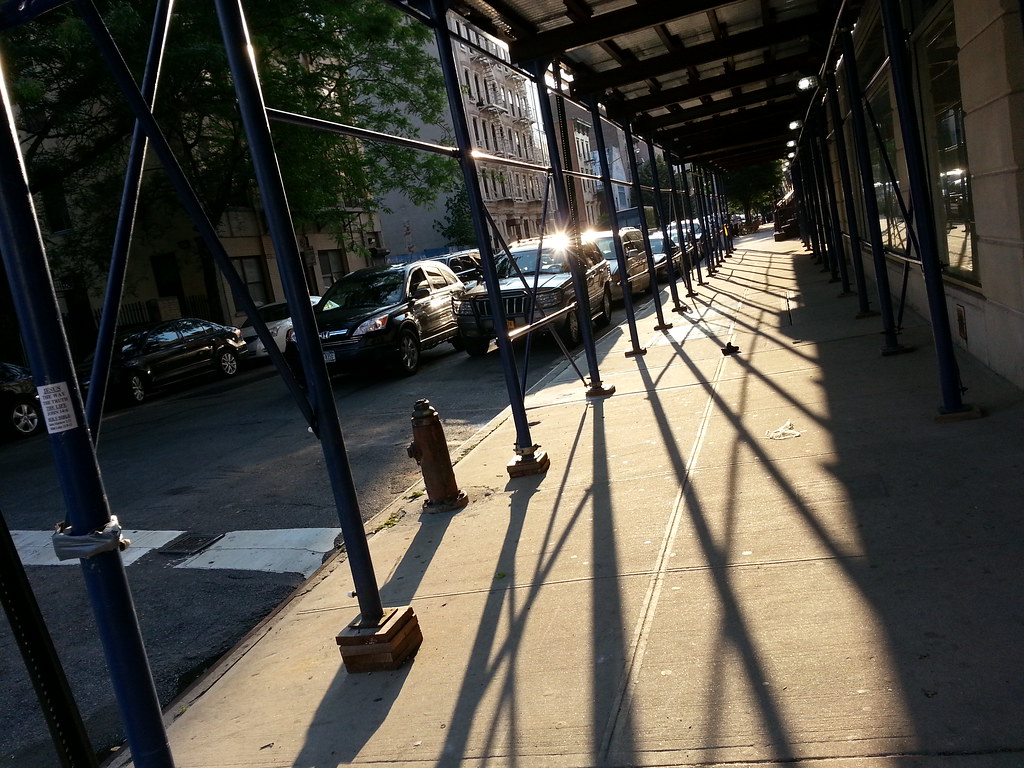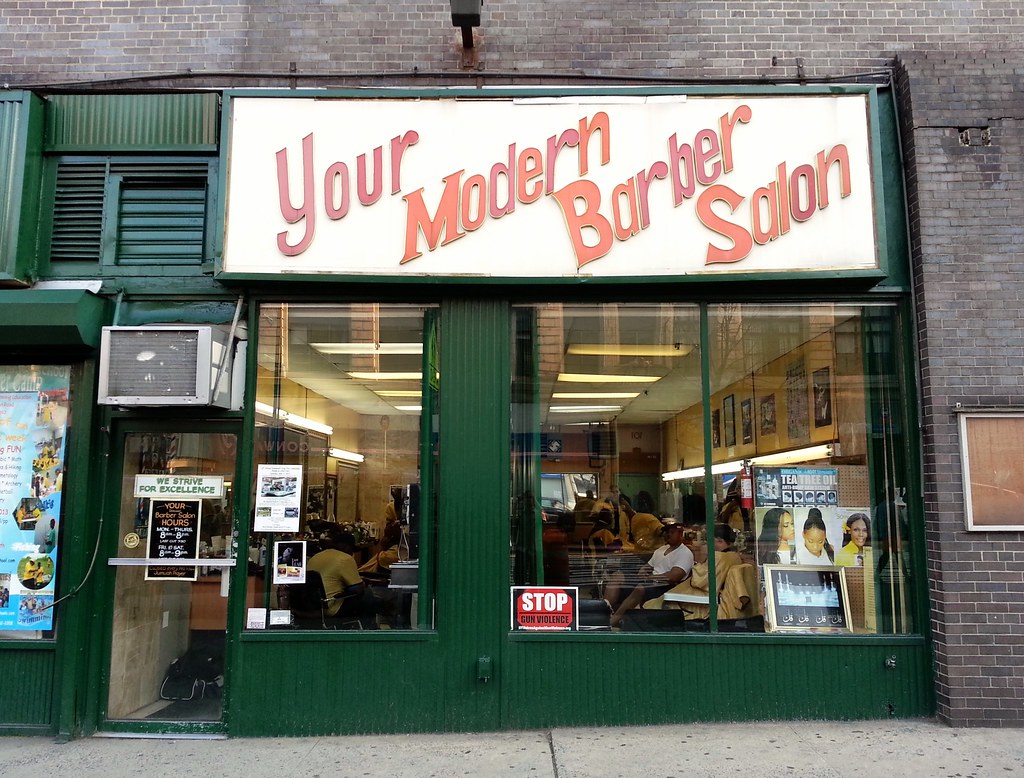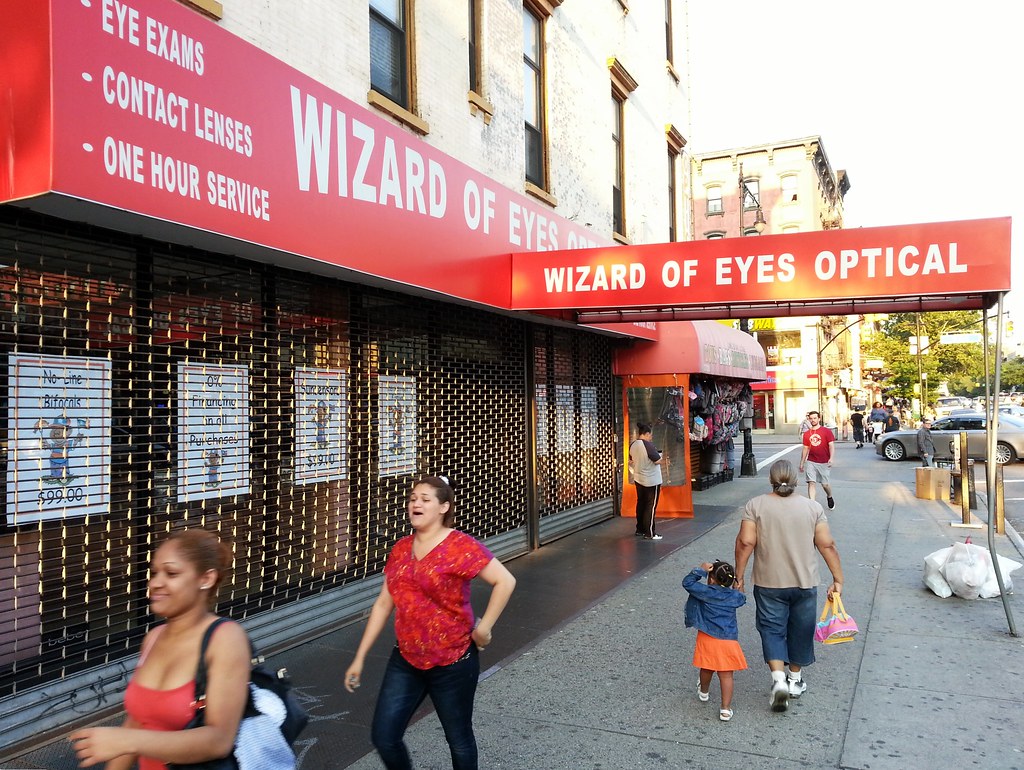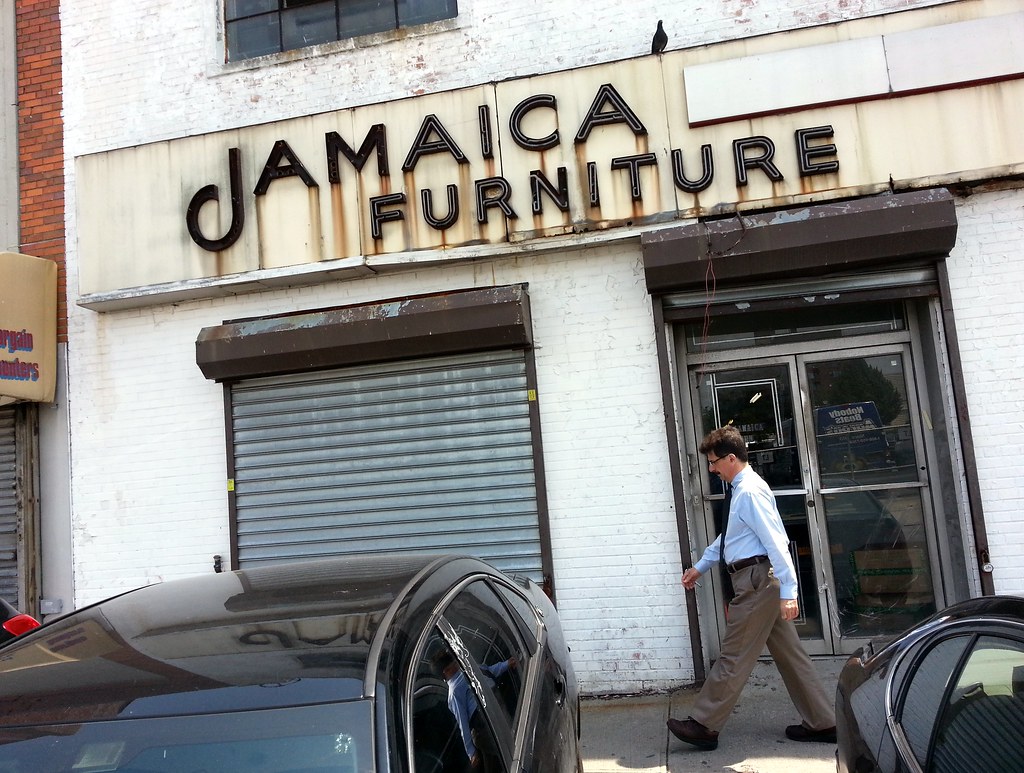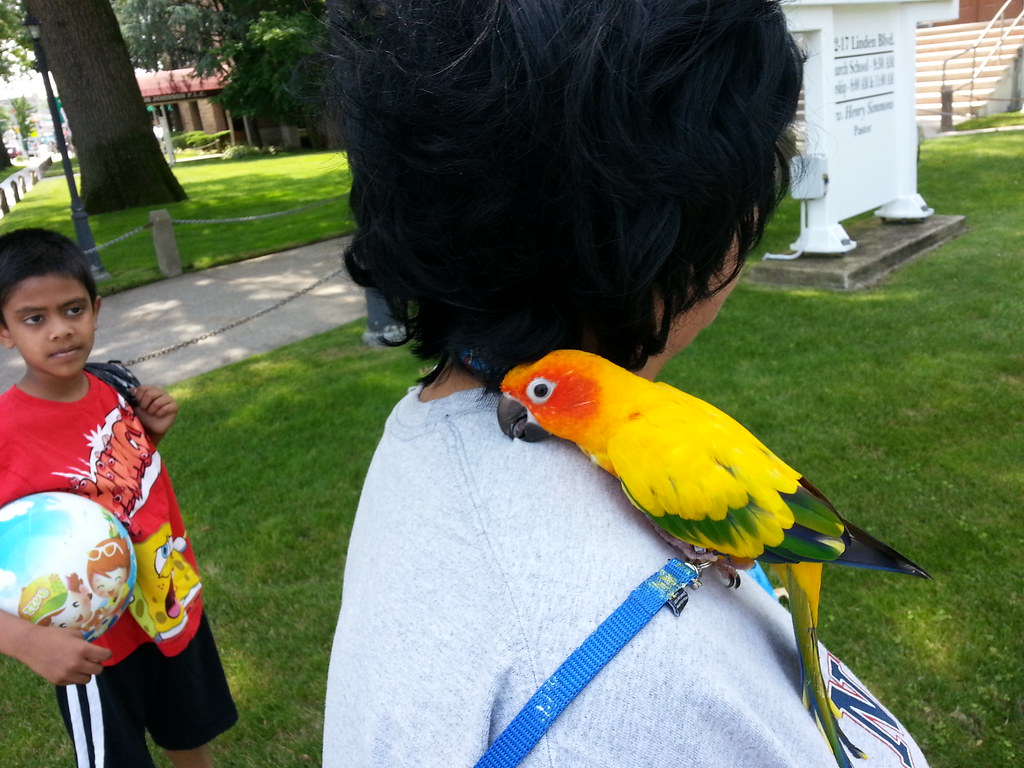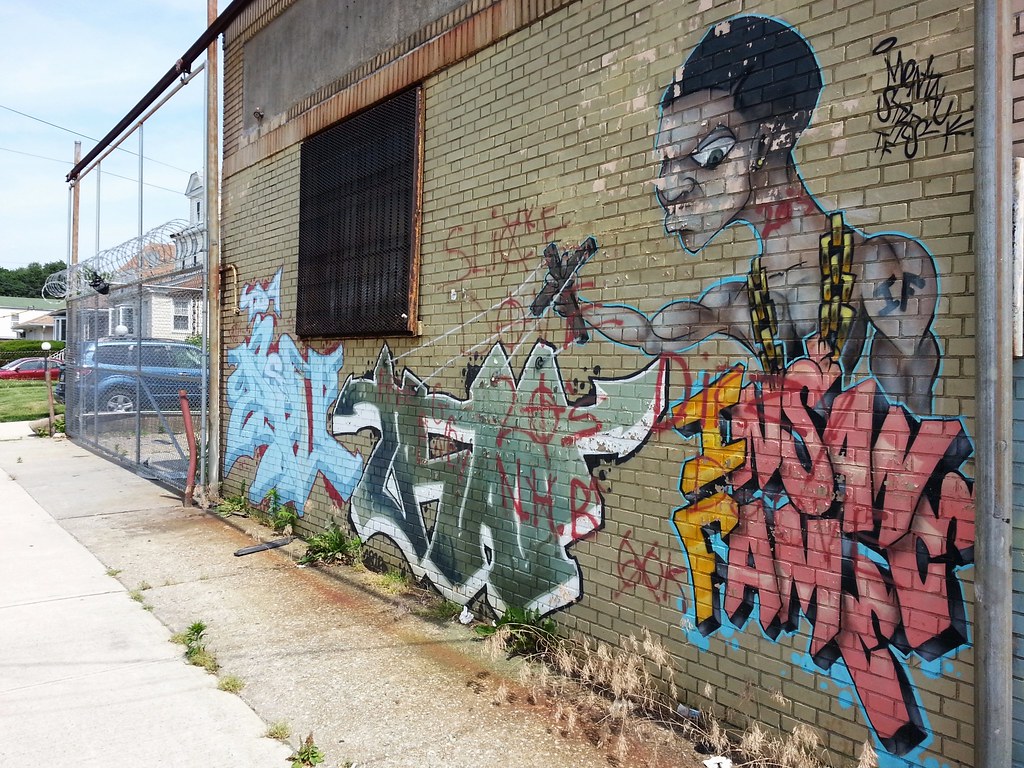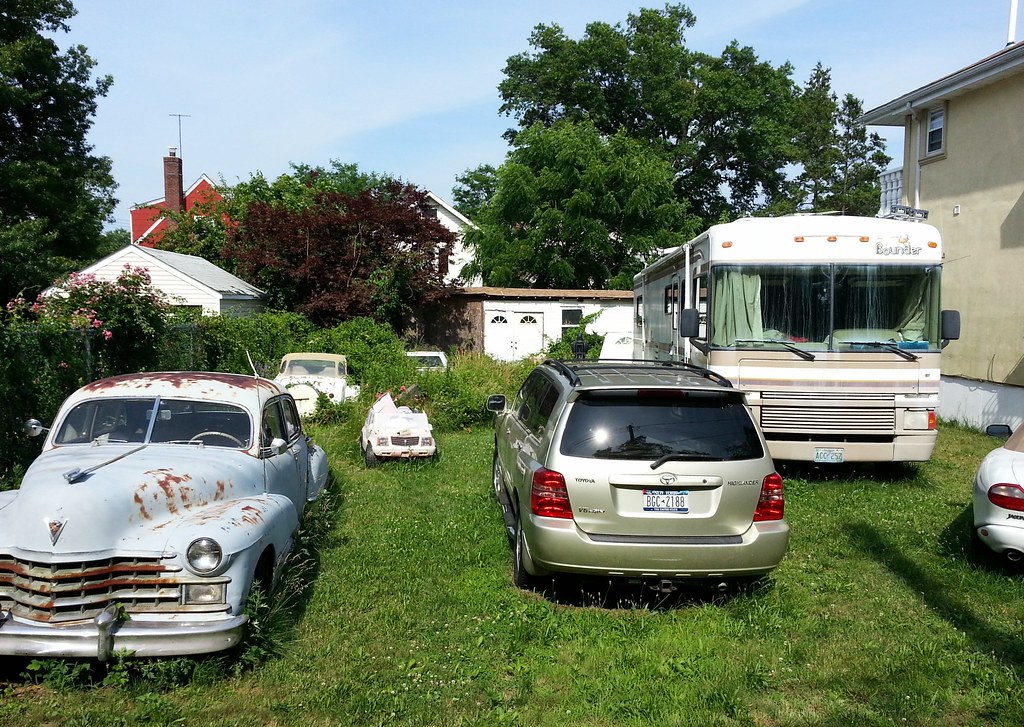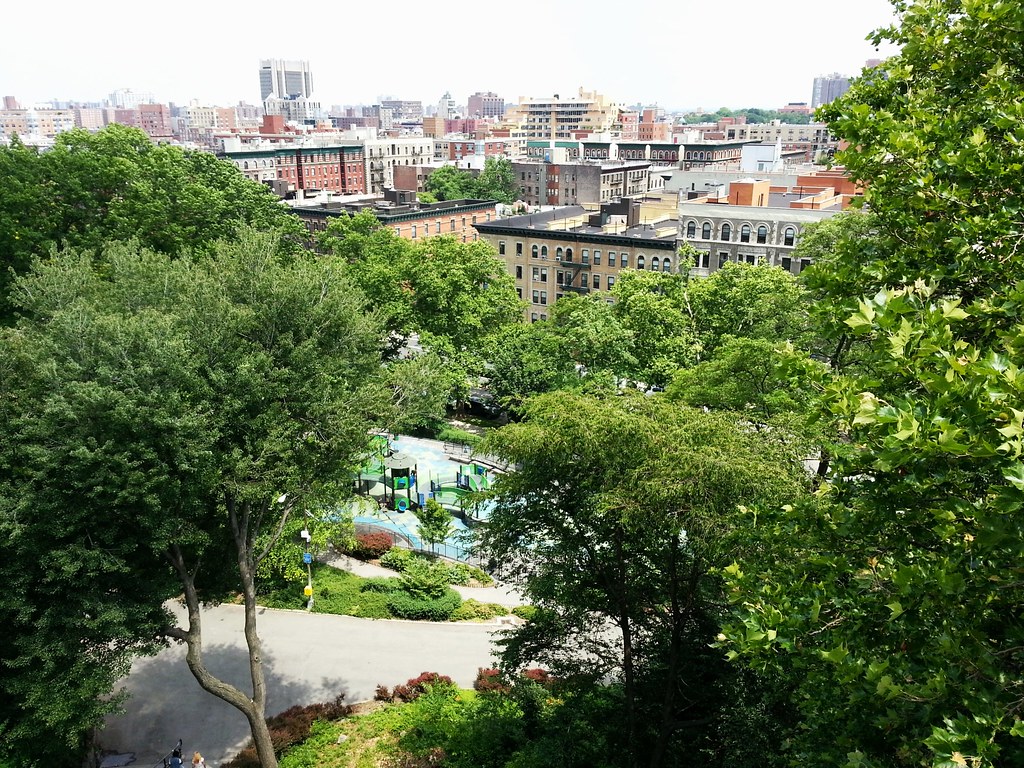
Off in the distance, dominating the Harlem skyline, is the Adam Clayton Powell Jr. State Office Building, with the Hotel Theresa directly in front of it.
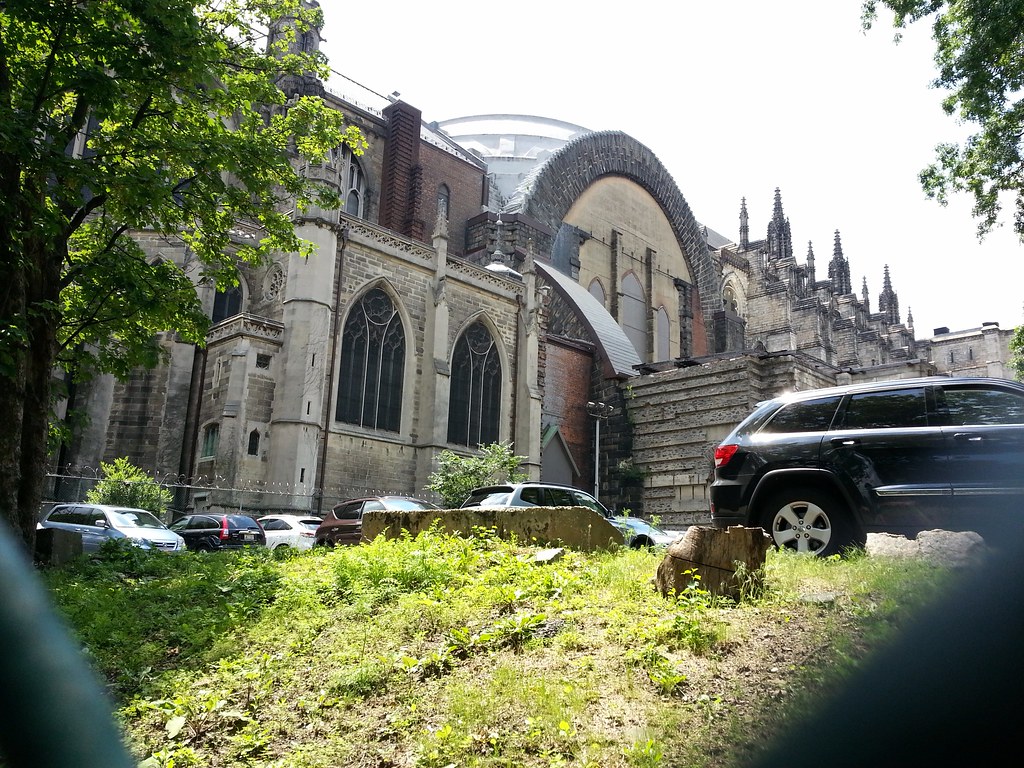
at St. John the Unfinished, one of the largest churches in the world. Photos!

They're growing like crazy on the slopes of Morningside Park. Many are still red or pink or even green, but there are plenty of ripe ones as well. I ate approximately 142 of them today.

I saw several turtles swimming around today, but apparently there are dozens living in the pond here in Morningside Park, a population consisting largely of former pets and their descendants.
I had always assumed that this pond had been around at least as long as the park, but it turns out it didn't exist until 1989 or so, when it was constructed out of a two-decade-old excavation crater that resulted from neighboring Columbia University's failed plan to erect a gym in the park. The gym would have had separate facilities for the student body and the public (consisting of the mostly black residents of Harlem); it was thus dubbed "Gym Crow" by some of the protesters who eventually succeeded in preventing it from being built. The anti-gym movement was one of the major components of the 1968 student protests at Columbia.

As the Wildman says: "It looks so good when you pick it, but has absolutely no flavor when you eat it, causing you to die of disappointment!"
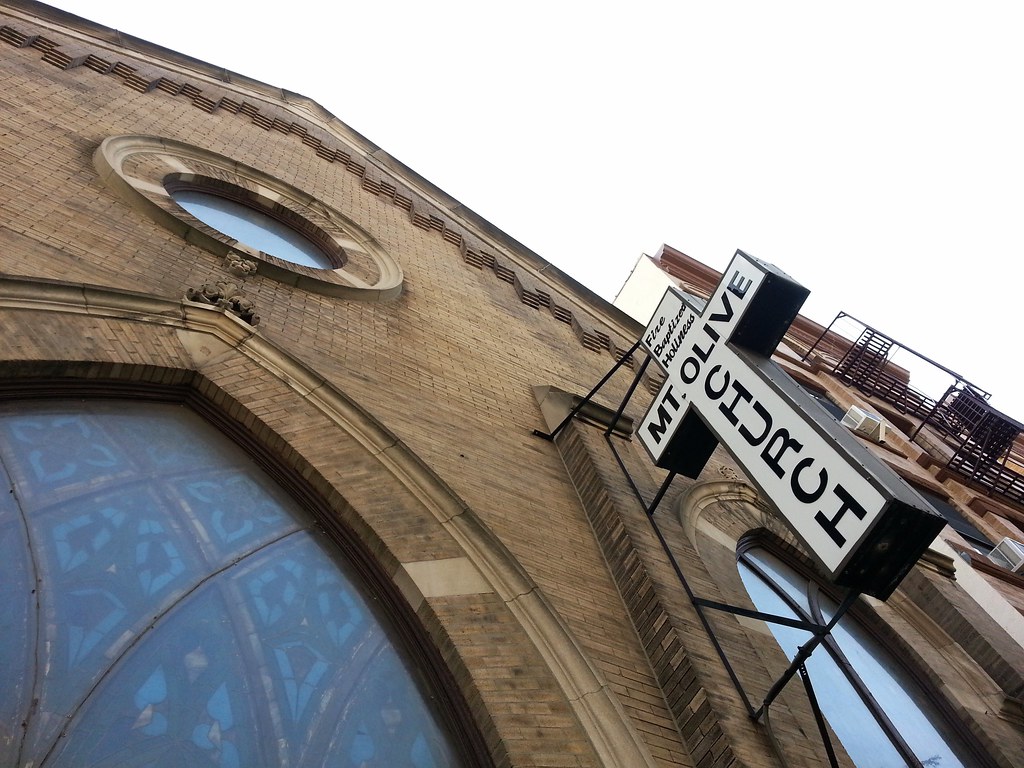
A beautiful little church — you can get a better view here.
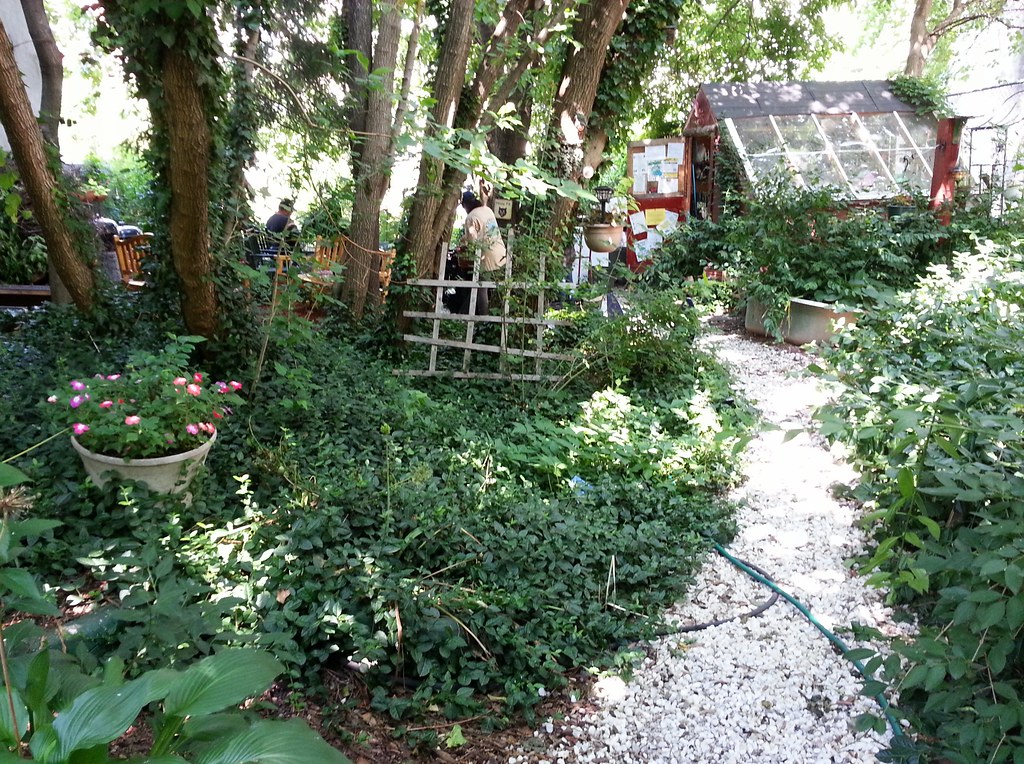
This exceedingly lengthy history (or "extended chronology") of the garden reveals the extraordinary dedication and commitment required to maintain a vacant lot turned community garden in New York City, especially during the bulldozing days of the Giuliani administration.
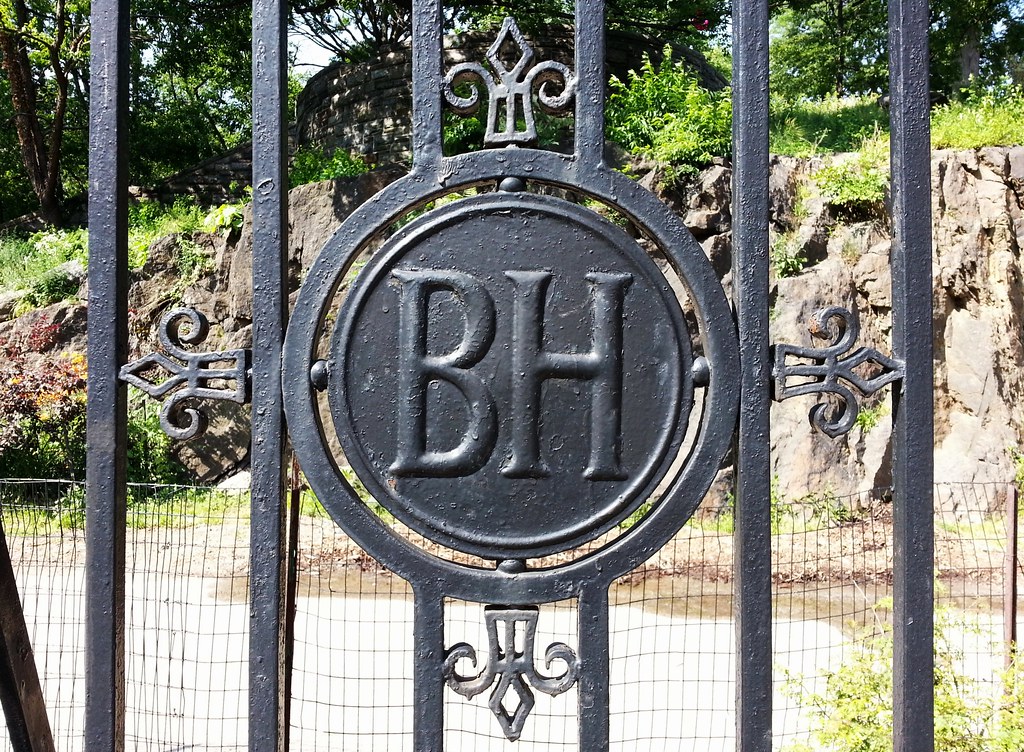
These initials can be found on a gate at the southern edge of Marcus Garvey Park. But what do they stand for? There are at least a few people who claim that, as strange as it sounds, this gate originally stood outside Bellevue Hospital and was moved here sometime in the 1950s.

This sculpture by Nnamdi Okonkwo has stirred up a bit of controversy, mostly as a result of its location in front of a new luxury condo building.
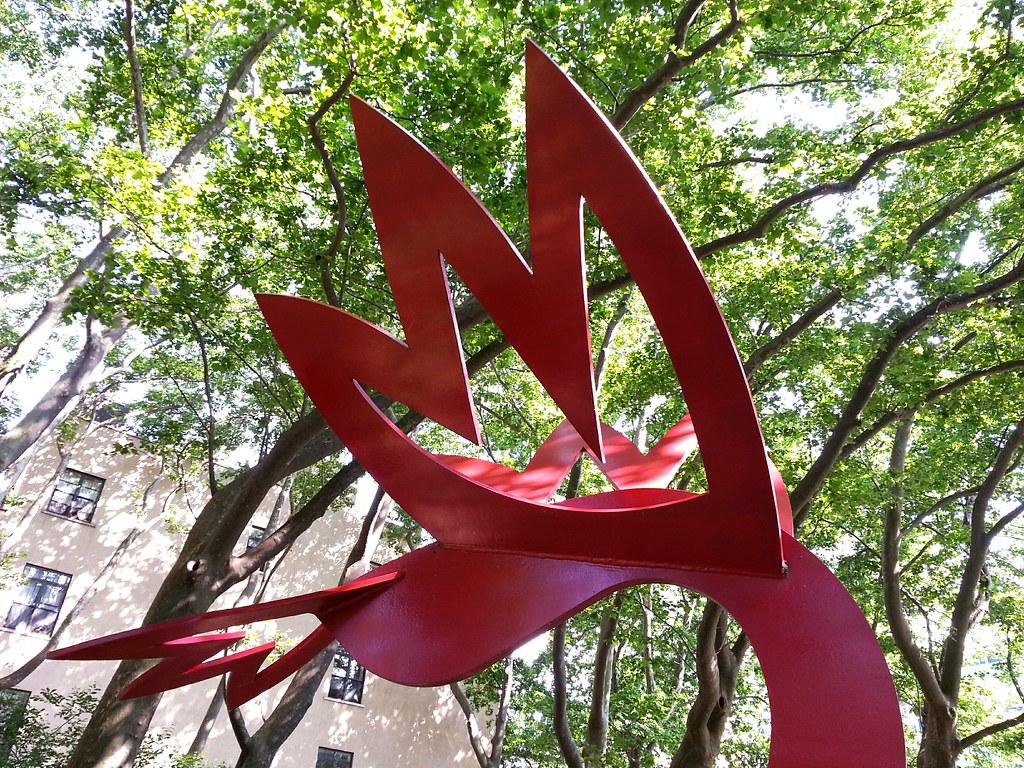
by Jorge Rodríguez. This is the centerpiece (and onlypiece) of Harlem Art Park.
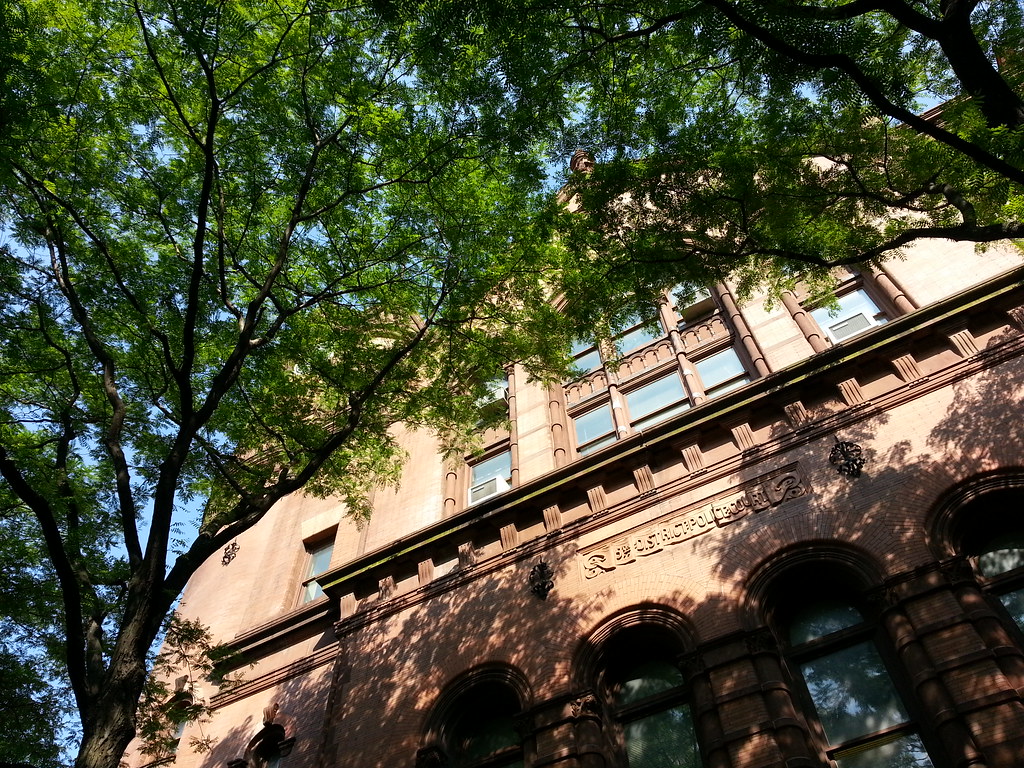
This grand Romanesque Revival structure (with "romantic Victorian Gothic overtones") opened in 1893 and, after falling out of use for some decades, is now home to the Harlem Community Justice Center. You can barely see the building in this photo, obscured as it is by the trees lining fittingly named Sylvan Place (a block-long remnant of a 17th-century roadway — more info halfway down this page), but you can get a better look on the pages linked above, the first of which also features an interior shot of the vaulted third-floor courtroom.
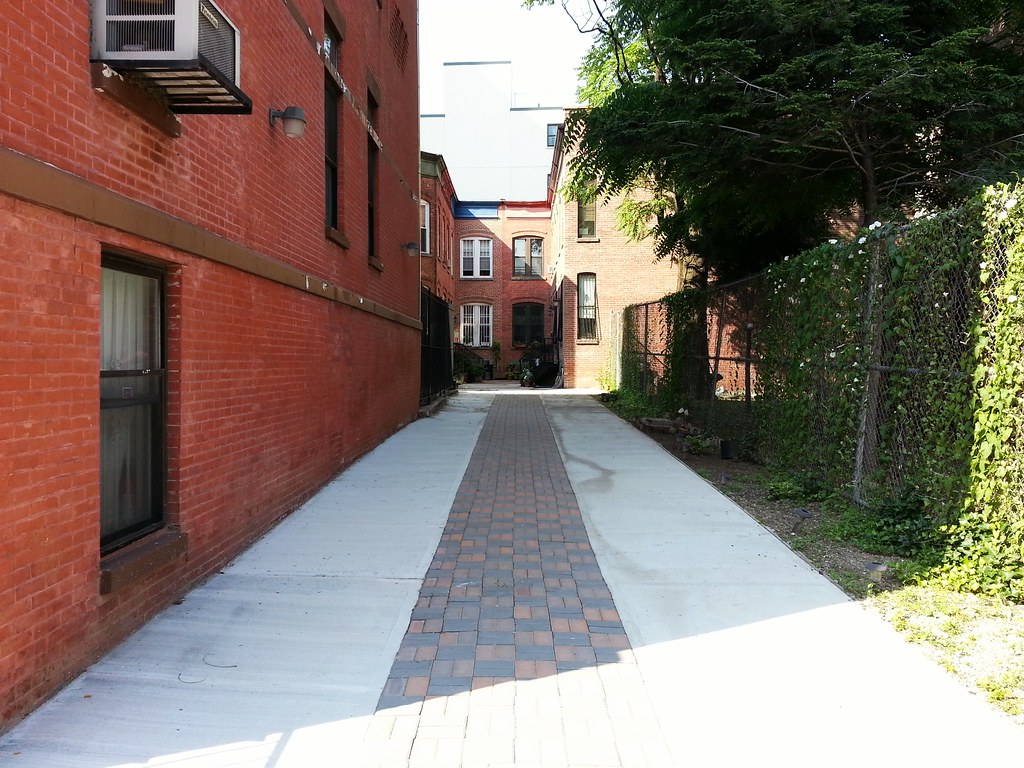
More than 100 years ago, the NY Times suggested Sylvan Court as a spot to visit "if one is interested in seeing a quaint bit of old Harlem . . . there are several old-fashioned brick houses on both sides of the court and the entire atmosphere of the locality reminds one of some of the half-forgotten spots occasionally found in the Greenwich Village district." That description still rings true to some degree, though less so than a couple of years ago when the street was still unpaved. You can see some 2009 shots of the houses and the yet-to-be-fancily-paved roadway about halfway down this page.
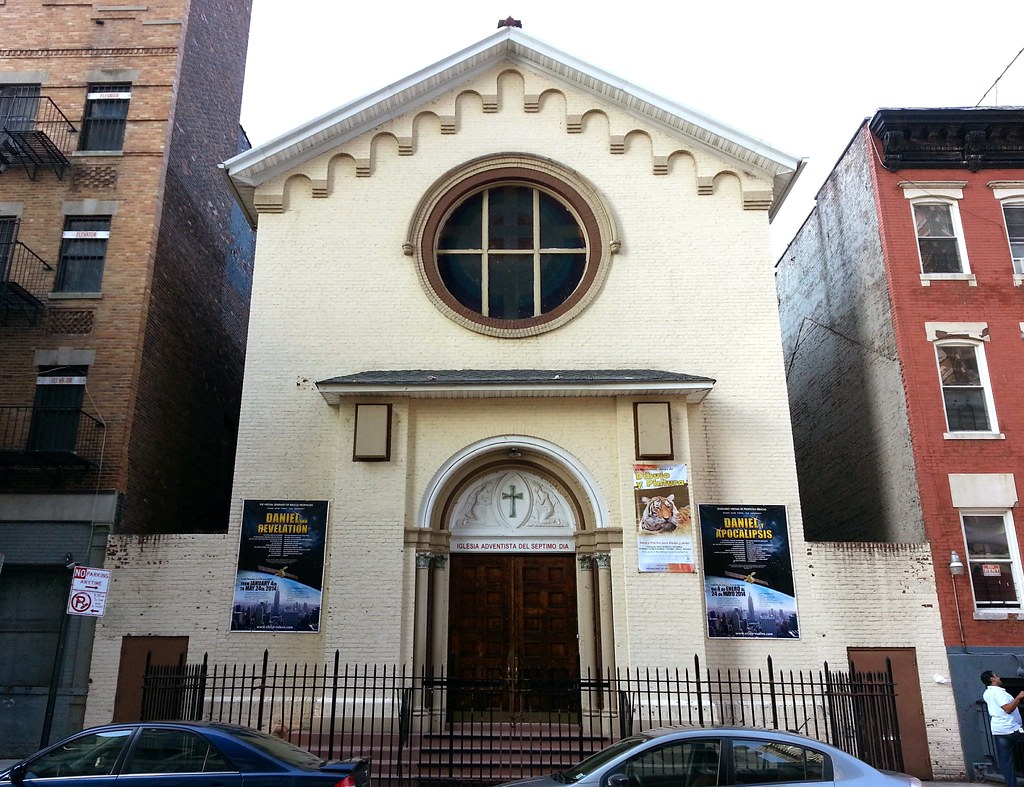
This "Romanesque treasure", designed in 1911, was originally Our Saviour Norwegian Lutheran Church.
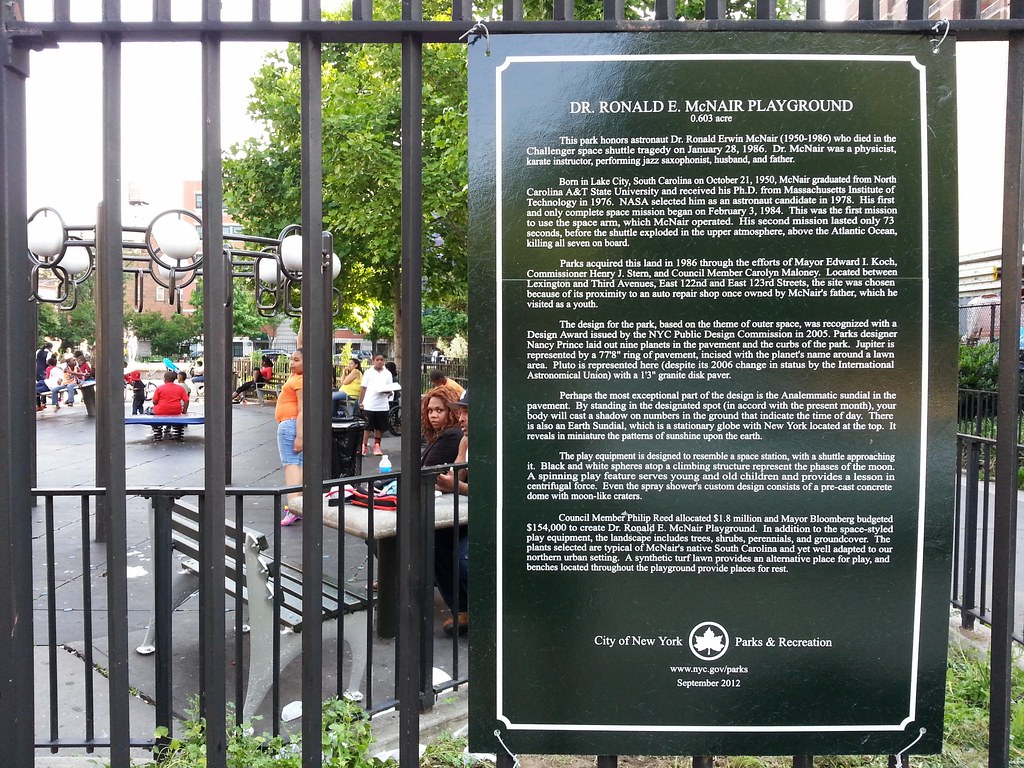
Perhaps you recall when we first saw a sign for this playground, about nine miles away in Brooklyn at the entrance to the similarly named Dr. Ronald E. McNair Park. The sign above, with updated text written last fall, mentions an analemmatic sundial as "perhaps the most exceptional part of the [playground's] design". I had never heard of such a sundial before and was excited to see one in action, but I couldn't find the damn thing! Maybe it actually exists in the park in Brooklyn.
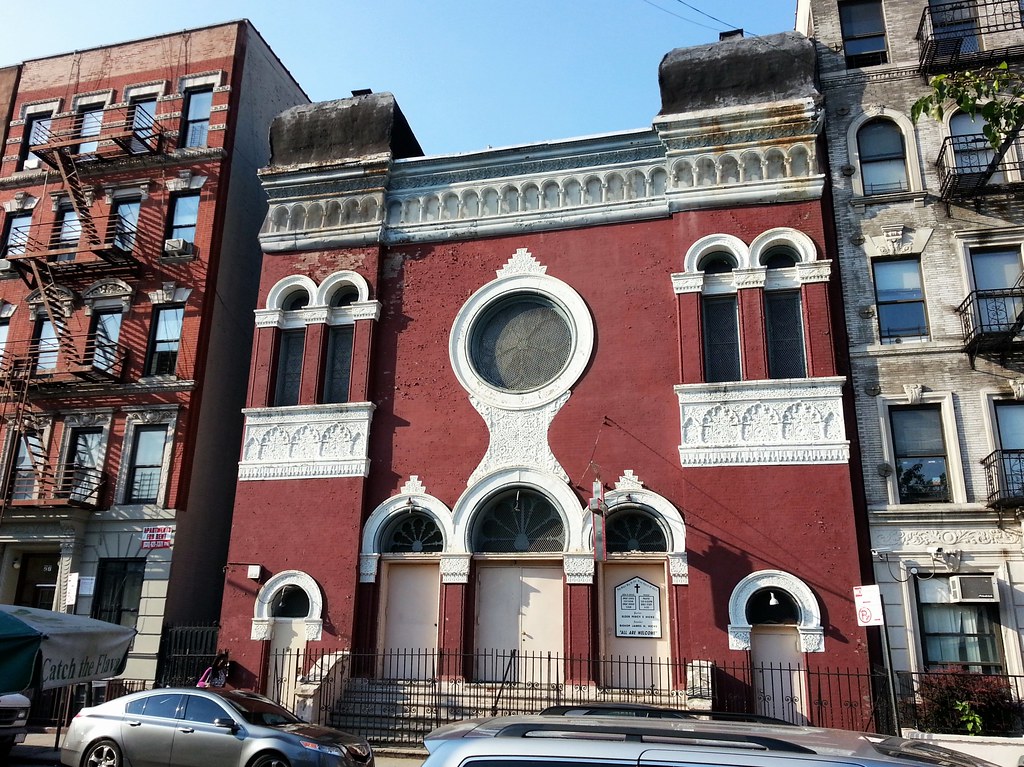
Back in Harlem's Jewish days, this building (currently New Bethel Way of the Cross Church of Christ) was home to Congregation Shaare Zedek. Completing the Abrahamic triad, the AIA Guide to New York City says: "Fanciful forms borrowed from Islamic architecture grace the façade of what, in another culture, might have been a harem."
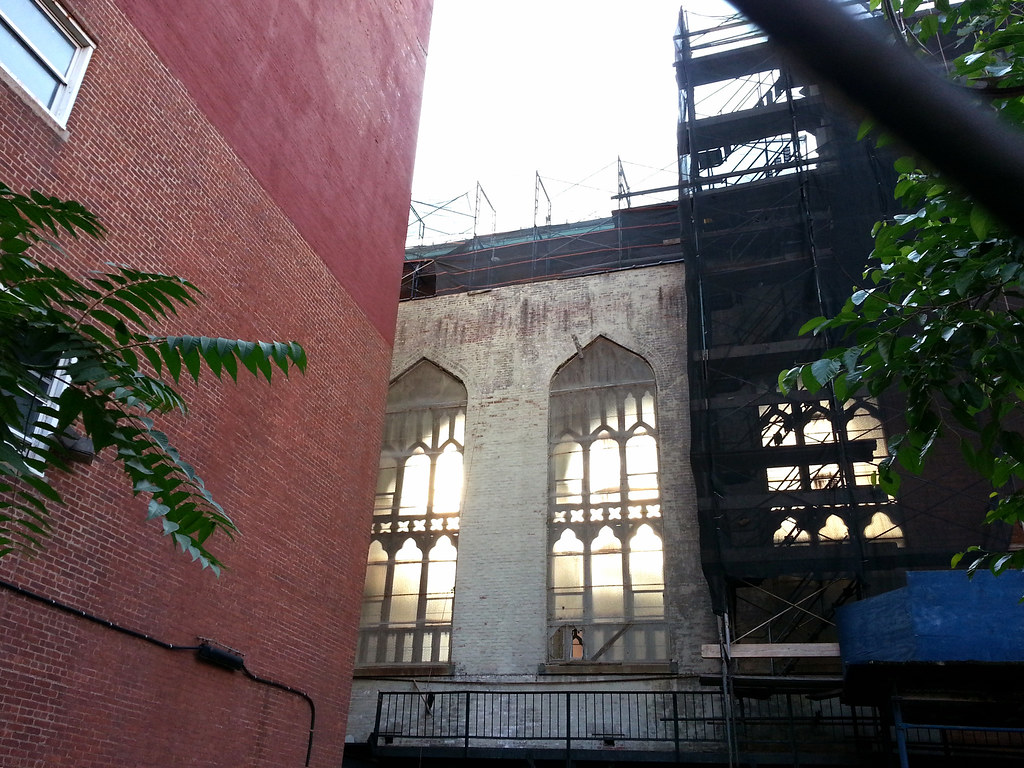
shines through the vacant interior of St. Thomas the Apostle. This shuttered church, with its "wildly ornate" facade now hidden behind scaffolding, has been called "one of the most original buildings in the city"; the AIA Guide to New York City describes its style as "berserk eclecticism . . . unnameable but wonderful". You can see photos of the structure in happier days here.
After closing St. Thomas in 2003, the Archdiocese of New York decided to knock down the church and replace it with affordable housing for the elderly, and actually began dismantling parts of the facade. Stunned by the idea of losing this architectural gem, former parishioners filed a lawsuit to halt the demolition and politicians stepped in to try to get the building landmarked. Neither effort was ultimately successful, but the archdiocese opted to hold off on its plans anyway.
While the exterior of the structure is still largely intact, the stained-glass windows (made by Mayer of Munich), altars, and other religious items have been removed and shipped off to other parishes. Many of the windows (which you can see here) ended up at Blessed Kateri Tekakwitha, a new church in Dutchess County, while others made their way to St. Brigid's in the East Village, which itself had been closed and briefly set upon by demolition crews before an anonymous donor stepped in with an offer of $20 million to restore and reopen the church.
The archdiocese finally gave up on the senior housing plan last year and sold the property to a developer who says he can save half of the church, including the facade, and wants to convert it into some kind of community space, although the rear portion of the building will still have to be torn down. This is all far from certain, of course, but it offers the preservationists a reason for measured optimism after so many years of disappointment.

At least someone is appreciating that pure Catskill Mountain water being poured out all over the ground.

Formerly known as the Bernheimer Building before some of its letters defected. Make sure to take note of the funny-looking security barrier and the not-so-funny-looking pigeons above the doorway; you can see them better if you zoom in. I failed to get a good shot of the awesome mural to the left, but fortunately this guy didn't.
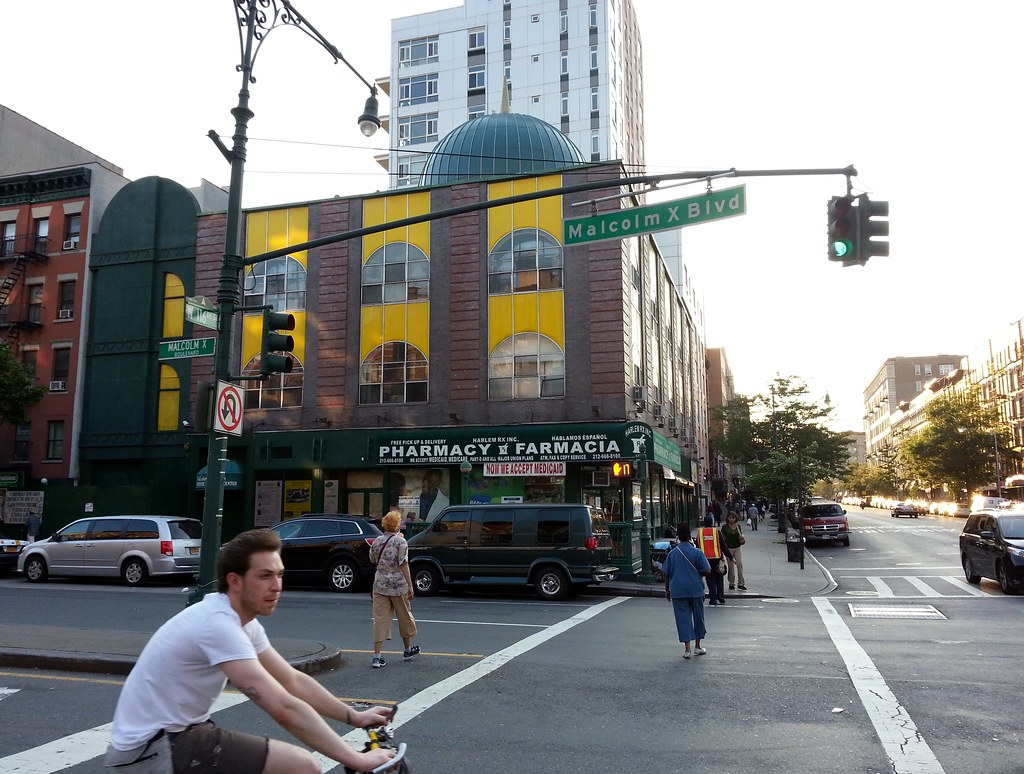
The Lenox Casino, built in 1905, once stood on this corner. In 1912, police raided the place after discovering an audience of hundreds of men gathered here to watch "hot stuff", a.k.a. "moving-picture shows of a questionable nature" featuring "a wide variety of questionable poses".
The casino was later transformed into the Nation of Islam's Temple No. 7, led by Malcolm X. Malcolm left the Nation in 1964 and was succeeded here by Louis Farrakhan. After Malcolm was assassinated by three members of the Nation a year later, the temple was destroyed in a bombing. The Nation relocated the temple elsewhere, and the Sunni Mosque you see above, named in Malcolm's honor, was erected a few years later, designed by a man named Sabbath Brown.
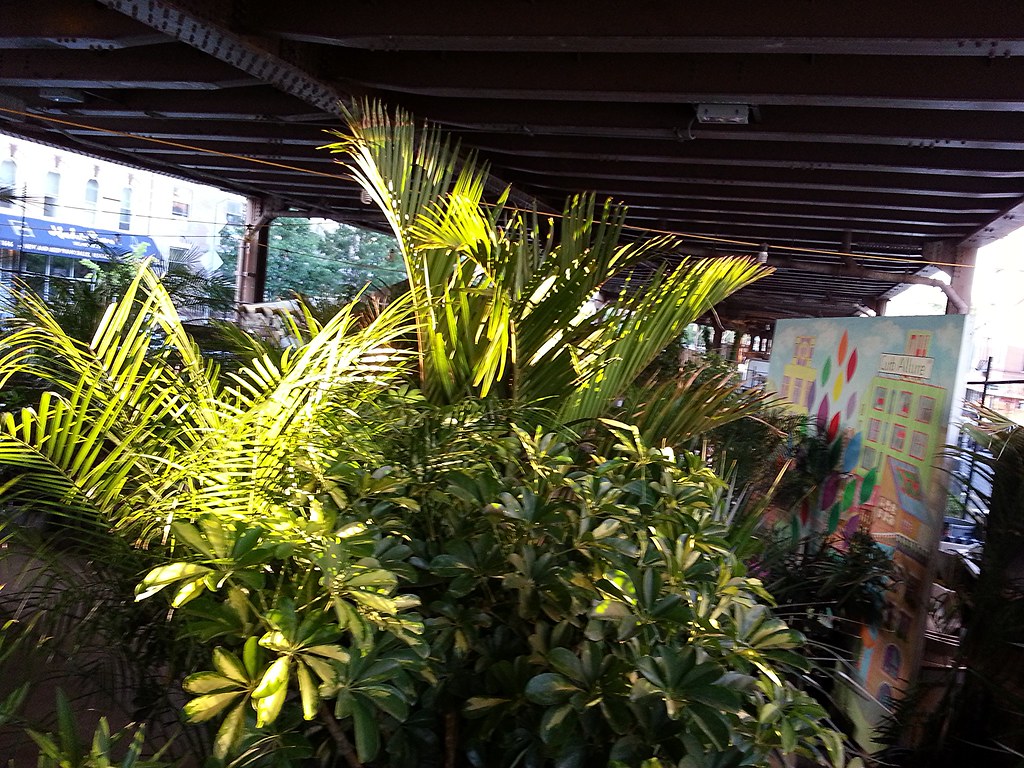
The Urban Garden Center, part of the beneath-the-railroad marketplace known as La Marqueta
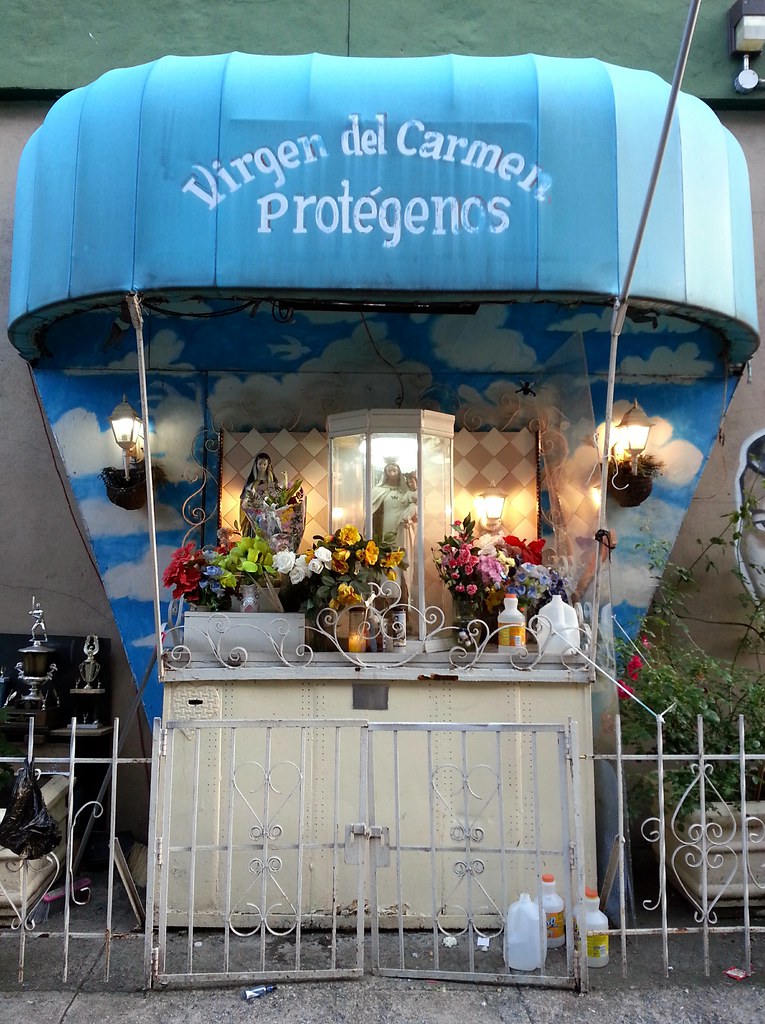
Surrounded by sports trophies and old Sunny D bottles, this standalone shrine fits snugly between an apartment building on one side and a metal roll-down gate on the other. According to one guidebook: "Originally put in place by the parish of Our Lady of Mt. Carmel to commemorate Italian soldiers killed in World War II, it is now used by the neighborhood's Latino residents." (I assume they meant Italian-American soldiers!)
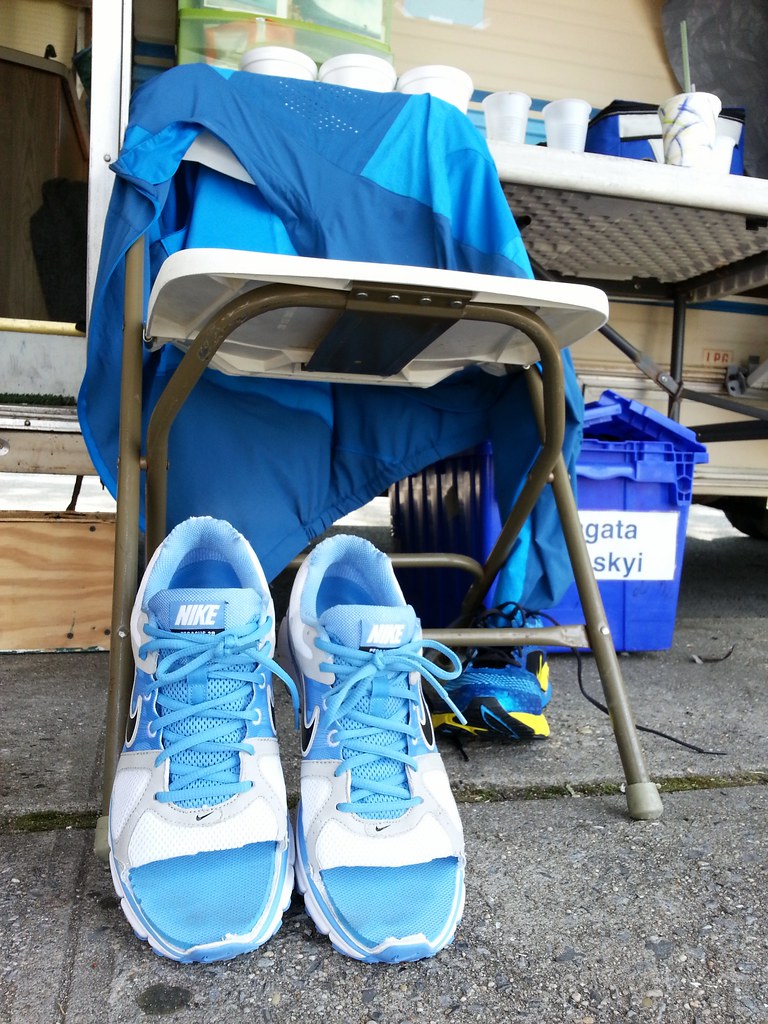
Just dropped by for a quick beginning-of-the-day visit to the Self-Transcendence 3,100 Mile Race. Many of the runners cut the toes out of their shoes to relieve pressure, reduce friction, and let in some fresh air.
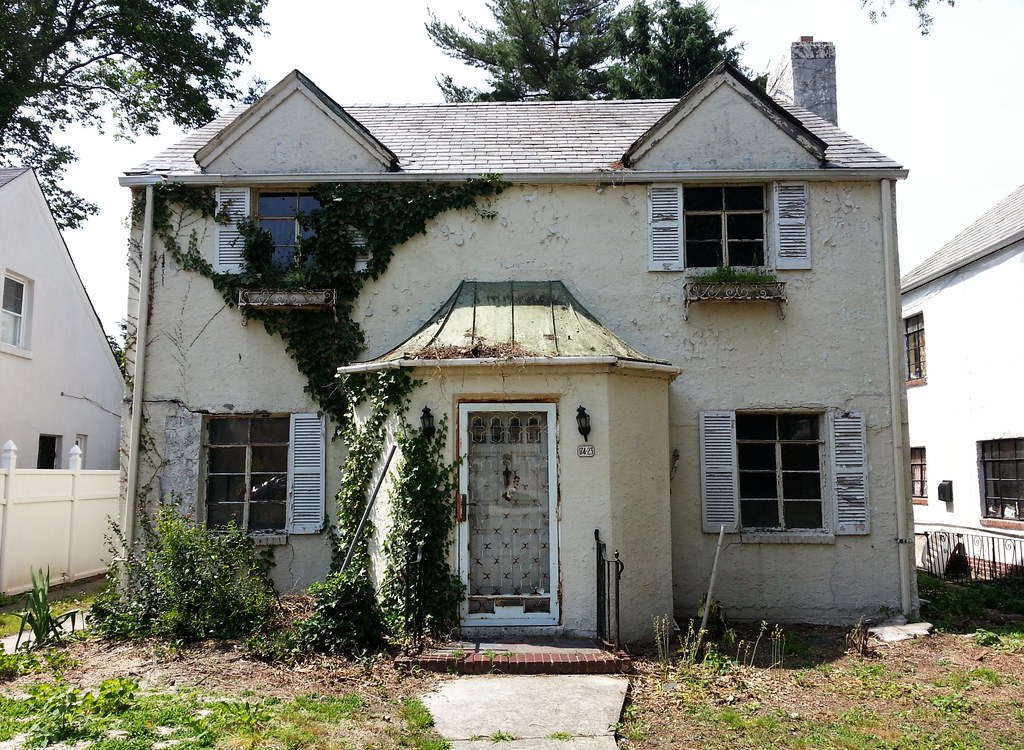
But this house has had a serious shave in the past year.

The owner of these horses said they live at the Bronx Equestrian Center, but he likes to bring them out here to Queens once a week just to hang out in the neighborhood.
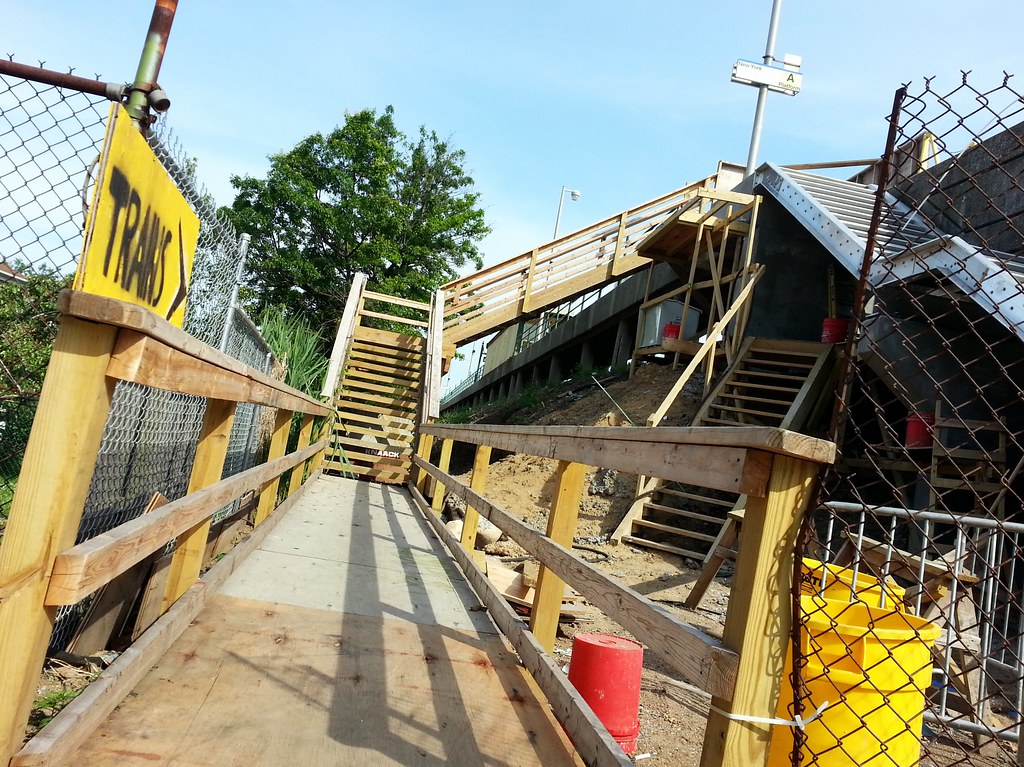
Construction at the Locust Manor LIRR station. The coyotes will be pleased with the improved facilities, I'm sure. This station once served the adjacent Jamaica Racetrack, which closed in 1959 and was subsequently torn down and replaced by Rochdale Village.

